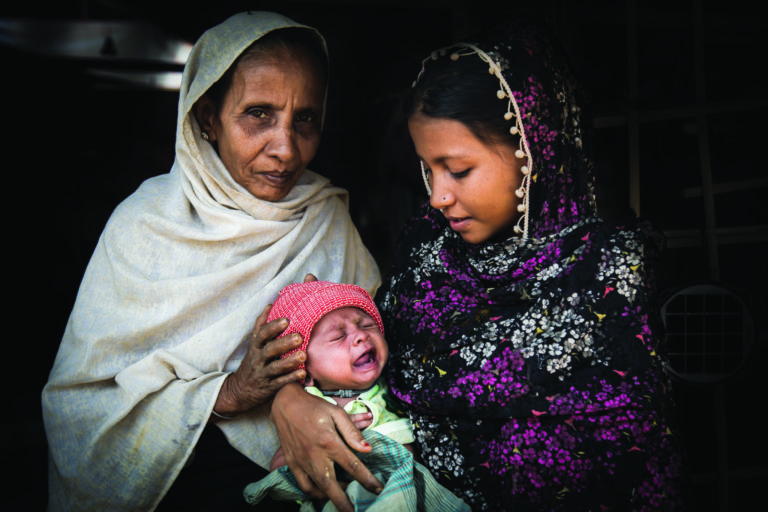Globally, 2.4 million babies die during their first month of life each year (HNN). Neonatal mortality is highest in low-income settings, fragile states, and countries that have recently experienced a humanitarian crisis, where risks of complications and infections are high. In 2022, 38% of newborn deaths and 38% of stillbirths globally occurred within 30 countries with a UN Humanitarian Appeal (AlignMNH). In humanitarian settings, challenges to newborn health service delivery can include service disruption and facility destruction, population movement, competing priorities, and insecurity.
In 2018, The Newborn Health in Humanitarian Settings: Field Guide (NBFG) was published to provide humanitarian program managers and implementers with guidance and tools to incorporate neonatal interventions and ultimately reduce neonatal mortality and morbidity. The NBFG includes capacity building tools, M&E resources, indicators, guidance on supplies and commodities, information on situation assessments, a comprehensive list of helpful resources and more. It is available in English, French, Arabic, and Spanish, and since 2018 has been used as a programming and advocacy tool to aid humanitarian and development actors in ensuring the inclusion and provision of critical newborn health services in a crisis response. To mark World Refugee Day, The Inter-agency Working Group on Reproductive Health in Crises (IAWG) is thrilled to announce a new website for the Newborn Health in Humanitarian Settings Field Guide.*
“The digital guide is a one-stop-shop of resources for maternal and newborn health services in a humanitarian setting. I highly appreciate its user-friendliness, which is fundamental for the implementation, especially at the field level.” -Fatima Gohar, Maternal & Newborn Health Specialist, UNICEF ESARO.
The new website version of the Newborn Field Guide, designed and developed by Scope Impact, brings together essential guidance and tools that healthcare providers will find useful in designing, managing, monitoring, and evaluating newborn health services within humanitarian settings. During the website development, IAWG and Scope consulted with a steering committee of maternal and newborn health experts with experience working in humanitarian and fragile settings, on the design, functionality, and feasibility of the website. The content of the NBFG website underwent a light technical update to ensure inclusion of the most recent evidence available, like the updated WHO recommendations on maternal and newborn care for a positive postnatal experience. The final product is meant to be an easy-to-use resource in any setting, accessible from all devices, and available with limited internet connectivity.
This NBFG complements and serves as a companion to the Minimum Initial Services Package (MISP) and the Inter-agency Field Manual for Reproductive Health in Crisis Situations (IAFM). It has been designed as an enhancement to national strategies and programs aimed at improving the lives of newborns and their mothers. It is intended for program managers, health care providers, emergency responders, and cluster coordinators, as well as policy makers. It’s various chapters cover: 1) an introduction to newborn health in humanitarian settings and responses, 2) provision of essential newborn care in humanitarian settings at all three levels of care (household/community, primary and hospital), 3) strategic considerations, 4) program implementation considerations, 5) relevant resources and 6) a set of annexes containing practical tools and templates to facilitate newborn health interventions.
We are excited to present the new website version of the NBFG and encourage its use as an essential resource to improve the survival and wellbeing of newborns in humanitarian settings. We welcome your feedback on the use of this resource in the field and ways to improve it. Please send comments and questions to info@iawg.net.
*Currently, the digital version is only available in English with plans to translate the site into French, Arabic, and Spanish over the course of 2022. The PDF of the NBFG is currently available in Spanish, French and Arabic.
